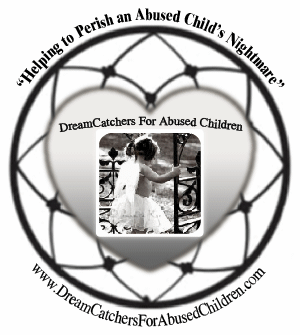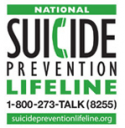A Guide for Parent’s Whose Child has been Sexually Abused
WHAT DO I SAY?
A GUIDE FOR PARENTS WHOSE CHILD HAS BEEN SEXUALLY ABUSED
INTRODUCTION
Your child has been sexually assaulted. You may be feeling a broad range of emotions—outrage, anger, hurt, and a sense of responsibility. Several questions may also remain unanswered. Why did this happen to my child? Could I have prevented it? Will there be any long-term effects?
When the offender is a parent, the effects on the family are even more traumatic. Did it really happen? Should I leave? Will he go to jail? How could he do this?
Your immediate concern, however, must be for the child. When a child is
molested, parents often feel uncomfortable with talking about the abuse. Yet, the future adjustment of the child depends upon the responses of the parents. When a parent can be emotionally supportive and comforting, long-term negative effects can be lessened.
Studies show that one in four girls and one in six boys will become a victim of sexual assault before they reach the age of eighteen. Unfortunately, parents are neither encouraged nor taught how to talk to children about sexual assault.
The intent of this guide is to provide suggestions to parents in talking with their child, anticipating physical and emotional needs, and deciding if professional counseling is needed.
IS MY CHILD BEING TRUTHFUL?
When a child reports a sexual assault, parents often question whether the child is telling the truth or not. However, evidence indicates that children rarely make up stories about being sexually abused. Usually they are too fearful of the consequences to the offender, themselves, and the family members.
If your child tells you about being sexually assaulted, let them know that you believe them. If you question whether the abuse really occurred, talk with a child protection worker or mental health counselor.
FOLLOWING THE INITIAL REPORT
Parents often feel they are the last to find out about the abuse. After the sexual assault is reported, children are generally interviewed by a child protection worker and law enforcement officer. Within the initial interview, children are asked to give a detailed account about the sexual assault. Your child may or may not be upset about this interview.
Children often do not directly tell a parent about the molestation. They sometimes feel embarrassed, responsible, or fearful of a parent’s response. Do not blame your child for not telling you sooner. Try and understand what your child has experienced. Ask how he or she felt about the interview and try to determine if anything in the interview was confusing.
WHAT DO I SAY?
When a parent talks with a child about the sexual assault, the child is helped by:
— Understanding what actually happened
— Expressing feelings about the abuse
— Knowing a parent cares
— Realizing that he/she is not responsible for the abuse
Your ability to listen to your child is important because sexual abuse evokes strong feelings in everyone. The following guidelines suggest ways a parent can talk with a child about sexual abuse.
1. Find a time and place to talk with your child as soon as possible. Choose a
place where you will not be interrupted and allow sufficient time to talk.
2. Ask your child to tell you about the sexual assault. Let your child tell you
what happened in his/her own words and try not to interrupt.
3. Do not pressure your child to talk. Discontinue the discussion when your
child indicates a desire to stop.
Example— “I can see it’s hard to talk about this. We can talk more later if
you want.”
4. Do not contradict your child’s story. Listen and be supportive to what your
child says about the abuse.
5. Do not blame your child for the sexual assault or ask “why” questions.
Some-times in talking with a child, parents express anger. It may be con-
fusing to the child as to whether you are angry with the offender or the
child. Children are NOT responsible for the sexual abuse even though
they may often feel to blame. A child should be assured that the offender
is the one responsible.
6. Understand that your child may care about the offender. When the
offender is a parent or close friend, a child may be concerned about what
will happen to that person. Frequent expressions of anger by a parent
about the offender may be upsetting to the child. Help your child under-
stand that what the offender did was wrong and he needs help to stop
this type of behavior.
7. Reassure your child by letting him/her know that you are sorry this has
happened to them and you will protect him/her from further abuse. Let
your child know that they can tell you if anyone tries to touch them in this
way again.
8. Talk with other children in the family. When the offender is a parent,
brothers and/or sisters need to understand that the offender, not the child is
responsible. The child who has been abused should be included in the
discussions if he/she wants to be.
IS MEDICAL ATTENTION NECESSARY?
Generally, children are not seriously injured by a sexual assault. However, it is advisable to have your child examined by a medical professional to check for
injuries. A medical exam can reassure a child that no physical damage has
occurred. An exam, however, does not necessarily confirm or disprove a child’s
story of sexual assault.
HOW WILL MY CHILD REACT?
Each child reacts differently to a sexual assault based on the child’s personality, age, type of abuse, relationship with the offender, and reactions of family and friends.
Effects may occur over a period of weeks, months, or years following the abuse.
Common symptoms that may occur immediately following the abuse include:
— Sleep disturbances
— Loss of appetite
— Depression
— Fears
— Physical problems such as stomach aches and migraine headaches
— Regressive behaviors such as thumb-sucking, bed wetting, and baby talk
— Sexual acting out behaviors such as inappropriately kissing or touching other
children or adults
— Problems at school
ATTENDING PROFESSIONAL COUNSELING
Children’s reactions to therapy vary and some may not want to attend. However, when possible, it is important that a child discuss the abuse. Very few children have no feelings about the abuse. Parents can aid in their child’s healing by:
— Stating that therapy can be helpful and encouraging attendance.
— Recognizing that a child may feel angry, depressed, or physically upset during
treatment. When a child begins to talk about the abuse, these symptoms are
frequently present.
— Talking with your child during or following counseling if needed.
— Letting the therapist know if the child has misunderstood what is said in treat-
ment, if symptoms continue, or if the child does not want to continue.
TAKING CARE OF YOURSELF
Parents must also be concerned about their own feelings about the abuse. Following the reporting process, parents often experience many negative feelings toward their child. Even the most caring parents may feel:
— Angry that the child did not tell them sooner
— Upset that the child did not tell them first
— Fearful that the child initiated the abuse
— Hurt and embarrassed that the child was abused
Such feelings should not be expressed to the child. Parents need to find friends or a counselor with whom they can talk about these and other feelings. Talking to someone who understands will benefit you and in turn, your child.
By the time you finish reading this, 15 children will have been abused; In the next five minutes, 30 more; Within the next hour, 360 more; And by tonight, close to 8,000+ children will have suffered from abuse, 5 of which will die. Child abuse has increased 134% since 1980 and is now considered a worldwide epidemic. The high jump in child abuse deaths and the shocking increase in statistics highlights the frightening lack of public knowledge.
Educate Yourself -- Learn the Facts
It May Just Save a Child's Life!!


















![Validate my RSS feed [Valid RSS]](http://dreamcatchersforabusedchildren.com/wp-content/uploads/2009/10/valid-rss.png)













Mom who hurts Says:
Thank you for creating this site. As a parent of a child who was abused I often feel alone and lost. This site gives great tools and resources to get through the pain. I have begun a blog about my experience as a parent at http://parentswhohurt.blogspot.com/. This is just another stage of our healing. Thank you for such a great site!
Posted on February 13th, 2010 at 5:57 pm
Shannon Says:
Hi there all.
My 4year old told me a very disturbing story, and in detail. She says her uncle touched her and promised her sweets and presents. I have consulted the hospital and doctor. We are investigating it. But how can I tell if what she has said is true.
I believe her with all my heart, but I dont want to believe that my husbands brother could or would do this to her.
I am scared and lost in myself, I am her mother, I am meant to protect her and keep her safe from these evils. I failed her. How do I work through this.
Posted on April 21st, 2010 at 6:25 am
Sandra Says:
Shannon~
I am so sorry to hear about your daughter. Children that age very rarely “make-up” such a story–so, PLEASE believe her! Please refer to our CHILD ABUSE INFO section titled: Child Sexual Abuse. It will give you information on the signs & symptoms to look for & how to proceed from here. If you should have any further questions, please feel free to contact me at: dreamcatchersforabusedchildren@gmail.com
Posted on April 21st, 2010 at 6:33 pm
sudden hearing loss Says:
I genuinely enjoyed reading through this post.Many thanks.
Posted on April 26th, 2010 at 2:01 pm